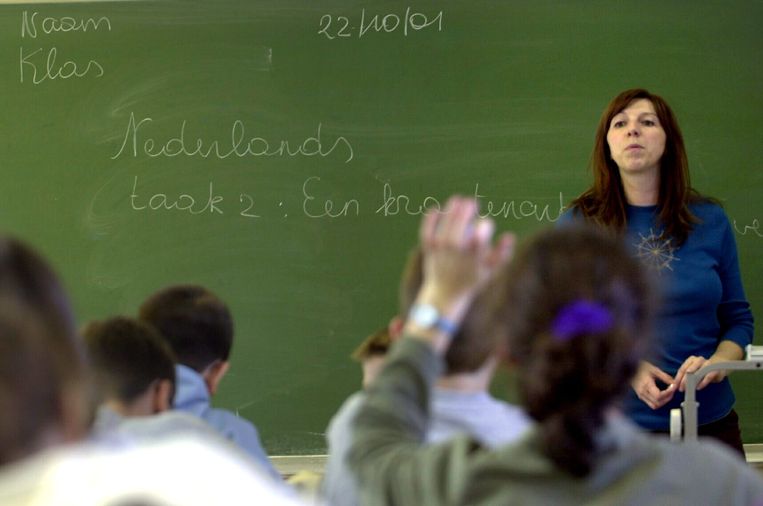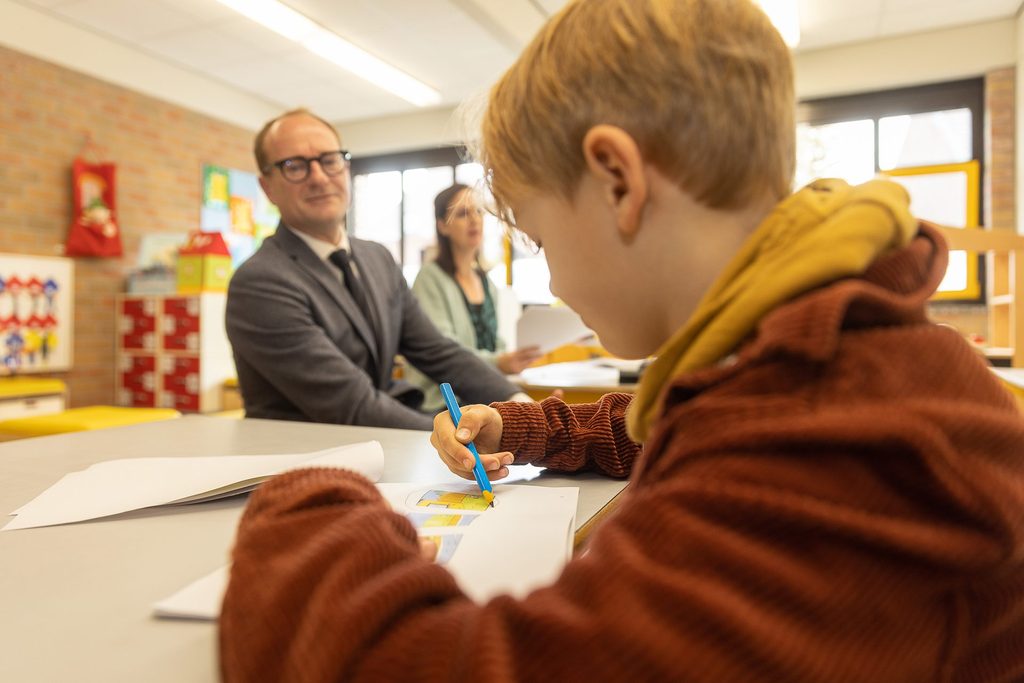The Flemish Government wants to set minimum targets for Dutch-language skills in the third year of kindergarten school, announced Education Minister Ben Weyts. It would be the first time ever that a grading system is set for children aged 5.
The 'minimum targets' define what pupils must be able to attain in their knowledge of Dutch before passing the school year. These new requirements have made headlines in recent years after the Constitutional Court annulled them in 2021 for third and fourth years (pupils aged 15-16) and the fifth and sixth years (pupils aged 17-18) in secondary education.
From now on, minimum targets should also be applied in the third year of kindergarten (the year before graduation to primary school, when pupils are about 5 years old), more specifically for Dutch, according to Weyts. This is a first, given that at the moment, the sector is working with so-called development goals that must be pursued as closely as possible.
"To raise the quality of education, we have to intervene at the base," said Weyts. "In primary school, we are also making clear choices: for Dutch and maths, and for more educational quality."
Preventing language deficiencies
In terms of content, the focus on Dutch and maths centres on the fact that "these are the basic skills: the subjects that make all other subjects possible," Weyts explained in a press release. "Therefore, for the first time, there will be minimum targets for Dutch that are not only to be pursued, but to be actually achieved in nursery school."
As with the language screening in the third kindergarten class, Weyts said that the aim is to prevent children from starting primary school with a language deficiency.
"I find the ambition to stimulate knowledge in kindergarten again very positive," expert nursery education Hilde Rabaut told De Morgen. "But I do not think that it is possible by imposing these targets. If we all once again clearly stated what works in kindergarten and taught that way, I think we would achieve more."
In primary education (pupils aged 6 to 12), at least 50% of all teaching time will be devoted to the Dutch language and mathematics. Recent international research proves that this kind of clear choice is needed, Weyts said.

Credit: Belga
Timing-wise, the development committees with teachers, representatives of education providers and experts will start further elaborating the minimum targets in September. For the first grade of secondary education (first and second year, pupils aged 12-13), the committees can look at the already developed minimum targets for second and third grades.
"We are continuing the work, having previously found new consensus around ambitious minimum targets for second and third grade in secondary school. Now there is also a breakthrough for primary education and first grade in secondary education," said Weyts.
"After more than a quarter of a century, there will finally be new minimum targets from kindergarten onwards. Once again, we have managed to find consensus in an arduous dossier. Instead of a fuzzy compromise, they are clear choices," he added. "This is how we set the bar sensitively higher."
Related News
- 'Woke madness': Flanders dismisses Dutch guide for inclusive language in class
- Financial sanctions if children 'do not learn' Dutch now supported by Flemish socialists
- Dutch and STEM: Flanders sets new learning goals for schools
While some experts have been calling for more attention to basic skills and knowledge (indeed, such as Dutch and maths) for some time now, they are not sure if just devoting more time is the solution. "Much will depend on whether that extra time is used in a high-quality way," mathematics professor Ann Dooms (VUB) told De Morgen. "For example, the manual material that is currently being used is often not of good quality."
Experts also question whether the new focus will be at the expense other subjects. Weyts explained that the intention is not to exclude subjects such a history or geography, but to make them more "linguistic" by paying attention to reading comprehension in a geographic text, for example.
However, how exactly this will take shape is in the hands of the experts who develop the minimum targets. In any case, the timing is ambitious: by September 2025, the new minimum targets for primary education should take effect.

